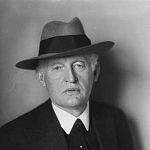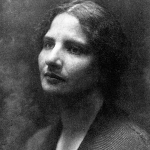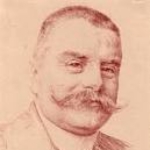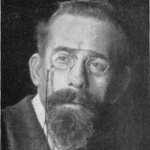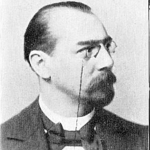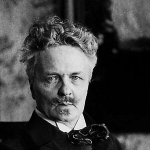Background
Richard Dehmel was born on November 18, 1886, in Hermsdorf near Wendisch Buchholz (now a part of Münchehofe, Germany) in the Brandenburg Province of the Prussian Kingdom.

Berlin, Germany
Richard Dehmel spent his childhood in the city of Kremmen, where he enrolled in a local school. He continued his education in Berlin at the Sophien-Gymnasium.
Unter den Linden 6, 10117 Berlin, Germany
Richard studied natural sciences, economics, and philosophy at the Humboldt University of Berlin.
Augustusplatz 10, 04109 Leipzig, Germany
Richard obtained his doctorate y in political and economic sciences at Leipzig University.
Photo of Richard Dehmel
Photo of Richard Dehmel
Photo of Richard Dehmel
Photo of Richard Dehmel
Richard Dehmel and Ida Auerbach
Photo of Richard Dehmel
Photo of Richard Dehmel
Photo of Richard Dehmel
Photo of Richard Dehmel
Photo of Richard Dehmel
Photo of Richard Dehmel



















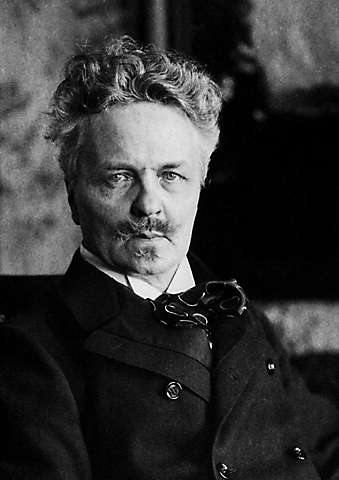
Richard Dehmel was born on November 18, 1886, in Hermsdorf near Wendisch Buchholz (now a part of Münchehofe, Germany) in the Brandenburg Province of the Prussian Kingdom.
Richard Dehmel spent his childhood in the city of Kremmen, where he enrolled in a local school. He continued his education in Berlin at the Sophien-Gymnasium. Due to a dispute with the headmaster, he had to leave the Berlin gymnasium and moved to Danzig, where he passed his final exams.
Richard studied natural sciences, economics, and philosophy at the Humboldt University of Berlin. During his studies, he belonged to the student corporation Hevellia Berlin. He obtained his doctorate at Leipzig University in political and economic sciences.
Richard Dehmel worked as a secretary at a fire insurance association and then, in 1895, became a freelance writer.
Dehmel's earlier efforts are more spontaneous than his later, more structured, and intellectual works. Associated with the Jugendstil (art nouveau) literary movement that developed in Germany at the turn of the nineteenth century, he lived in Berlin, where he befriended and was influenced by a variety of artists, writers, and musicians, including the brothers Heinrich and Julius Hart, Otto Erich Hartleben, Amo Holz, Edvard Munch, and August Strindberg. He was also a close friend of writer Detlev von Liliencron, and after Liliencron's death in 1909, he edited and prepared a complete edition of Liliencron's yet-unpublished works.
In his first collection of poems, "Erlösungen" (1891; "Redemptions"), the conflict is expressed in the opposition of unbridled sensuality and ascetic self-discipline. Dehmel found a resolution of the conflict through his belief in the mystical power of love and sex. He came to view the sensual relations between a man and a woman as the basis for the full development of the human personality and for a higher spiritual life. This is the theme of his cyclical epic poem, "Zwei Menschen" (1903; "Two People"). His treatment of sexual themes was not only passionate but, for the times, shockingly frank.
Dehmel volunteered for service in World War I. His immediate disillusionment, however, was expressed in his last work, a war diary, "Zwischen Volk und Menschheit" (1919; "Between People and Humanity"). His other major works are "Weib und Welt" (1896; "Woman and World"), "Die Verwandlungen der Venus" (1907; "The Transformations of Venus"), and "Schöne Wilde Welt" (1913; "Beautiful, Wild World").
Richard Dehmel was a popular and highly regarded German poet early in the 20th century. Today he is best remembered as the author of "Transfigured Night," which inspired Schoenberg's great sextet. Dehmel's poems inspired the various composers. Richard exerted a major influence on young writers through his innovations in form and content.
Dehmel was both a naturalist and a visionary. He rejected the poetic conventions of his time and prepared the way for expressionism through his innovations in form and content. He was also one of the first major poets to write about the misery of the working classes. Despite the diversity of his literary output - poems, novellas, children's stories, fairytales, essays, translations, and plays - he is best remembered for his lyric poetry. He began writing poems while working for an insurance company from which he resigned once he had published his first two volumes of poetry. He gained public celebrity when the 1896 poem "Venus Consolatrix." Some of his poems were even set to music by such artists as Richard Strauss. Many of his works, while by no means erotic, were sensual in nature, following Dehmel's belief in the importance of man’s ability to commune with women in order to overcome loneliness and isolation. He also saw this communion as elevating one towards ever-higher levels of spirituality, eventually achieving the divine level of universal love. These ideas are expressed in his masterpiece, "Zwei Menschen."
Quotations: "A little kindness from person to person is better than a vast love for all humankind."
Richard Dehmel saw himself as the follower of Heinrich Heine, Frederick Nietzsche and Detlev von Liliencron.
With a personal life sometimes described as having been as tempestuous as his literary work, Dehmel was married for ten years to fairytale writer Paula Oppenheimer, with whom he had three children and collaborated on a popular children's book of verse.
After divorcing his first wife, he married Ida Auberbach in 1901 and traveled extensively throughout Europe with her. His work "Weib und Welt," considered controversial by critics when first published, was inspired by his relationship with Ida.
